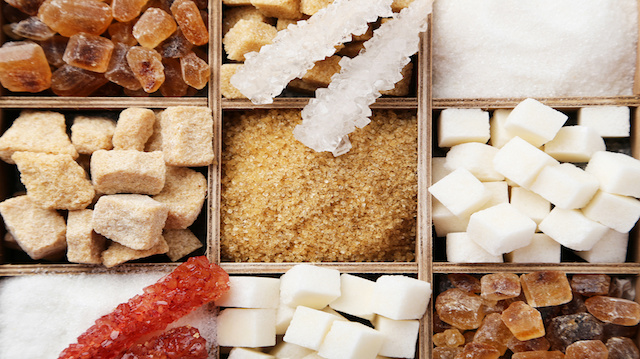
Researchers from the University of Texas MD Anderson Cancer Center have taken a closer look at dietary sugar in Western diets and found it may increase your risk for breast cancer development.
Sugar has been the focus of many studies that have examined the links between sugar and various chronic diseases. This recent study examined how sugar may “increase the risk of breast cancer and metastasis to the lungs,” according to a University of Texas press release.
The research was published in Cancer Research (2015) and highlighted sugar’s impact on the body’s enzymatic signaling pathway, termed 12-LOX (12-lipoxygenase). In the study’s mouse models, researchers focused on sugar, breast cancer risk and mammary gland tumor development.
“We determined that it was specifically fructose, in table sugar and high-fructose corn syrup, ubiquitous within our food system, which was responsible for facilitating lung metastasis and 12-HETE [a fatty acid] production in breast tumors,” explained Dr. Lorenzo Cohen, professor of Palliative, Rehabilitation, and Integrative Medicine at The University of Texas MD Anderson Cancer Center.
Dr. Peiying Yang, assistant professor of Palliative, Rehabilitation, and Integrative Medicine at The University of Texas MD Anderson Cancer Center, noted the “inflammatory cascade” associated with dietary sugar intake.
“Prior research has examined the role of sugar, especially glucose, and energy-based metabolic pathways in cancer development,” Yang said. “However, the inflammatory cascade may be an alternative route of studying sugar-driven carcinogenesis that warrants further study.”
The study concluded that a high intake of sugar, specifically “dietary sucrose or fructose induced 12-LOX and 12-HETE production in breast tumor cells in vivo,” may be responsible for a higher risk of breast cancer tumor growth.
It may come as little surprise that consuming high amounts of sugar is not beneficial for your health. Most Americans consume much of their sugar, or dietary sucrose and fructose, through soda, juice and other sugar-sweetened beverages. According to a study published in Preventing Chronic Disease (2014), a CDC publication, one in four adults, approximately 23.9 percent of participants, consumed soda or fruit juice at least once a day. One in nine participants consumed soda or fruit juice twice per day, according to the study.
 This is interesting because 34.9 percent, more than one-third of American adults, are considered obese, according to the CDC. These numbers are too close to ignore.
This is interesting because 34.9 percent, more than one-third of American adults, are considered obese, according to the CDC. These numbers are too close to ignore.
Moderating sugar use has been widely recommended as the research on sugar continues to be associated with various health risks, including heart disease, cancer, diabetes, cardiovascular disease, obesity and metabolic disease, among other chronic diseases. The 2015–2020 Dietary Guidelines for Americans released by the Office of Disease Prevention and Health Promotion recommend that sugar only account for 10 percent of your daily calories.
Do you know how much sugar you consume daily?
—Stephen Seifert
Stephen Seifert is a writer, professor, adventurer and a health & fitness guru. His flair for travel and outdoor adventure allows him to enjoy culture and traditions different than his own. A healthy diet, routine fitness and constant mental development is the cornerstone to Stephen’s life.
Sources:
http://cancerres.aacrjournals.org/content/75/15_Supplement/3735.abstract?sid=56849691-2994-4fba-8949-0e5458c26448
http://www.eurekalert.org/pub_releases/2016-01/uotm-siw123115.php
http://www.cdc.gov/pcd/issues/2014/13_0304.htm
http://www.cdc.gov/obesity/data/adult.html
http://health.gov/dietaryguidelines/2015/guidelines/chapter-1/key-recommendations

